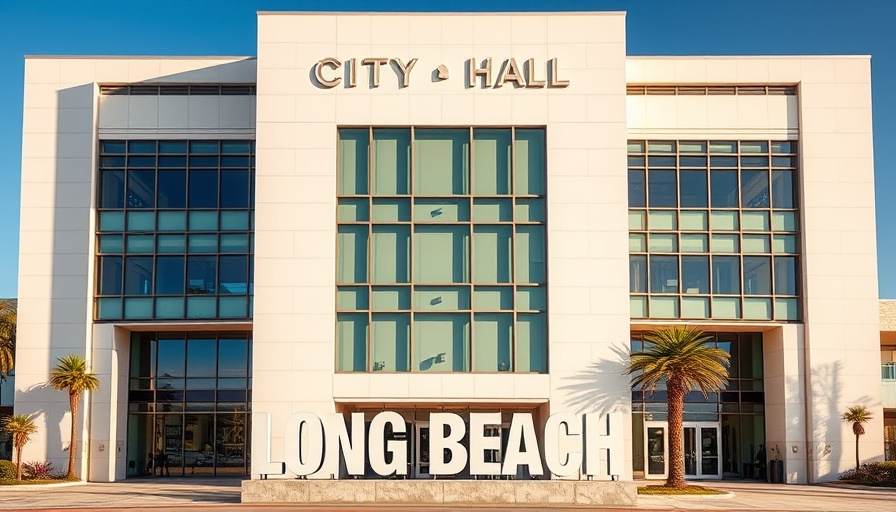
Long Beach's Budget Crisis: A Sharp Turn on Fiscal Policy
As economic turbulence surges across the nation, Long Beach is not merely reacting; it is taking swift action to ensure fiscal health in a time of uncertainty. City officials, led by City Manager Tom Modica, have outlined a plan to execute a $7 million cut from the municipal budget before the close of the fiscal year. With several departments facing a need to trim their discretionary spending by as much as 1%, the city is conceptualizing these cuts as a 'cost-savings strategy' rather than outright reductions to essential services.
The Challenge of Declining Revenues
Many municipalities across California, including Long Beach, find themselves grappling with similar budgetary dilemmas. The decline in local oil revenues, so vital to the city's finances, is a pressing concern. A June 2024 report projected Long Beach would suffer a staggering 54% ovf revenue loss from oil production by 2035, totaling nearly $300 million. Such projections amplify ongoing anxieties regarding upcoming federal funding changes, directly linked to recent shifts in federal policy that could drastically reshape the financial landscape for cities dependent on state and federal aids.
Exploring Cost-Cutting Measures
City departments are now under a directive to innovate their approaches to spending. Creative solutions may involve deferring purchases, postponing or canceling contracts, limiting travel, and delaying new hires. It's a tightrope act: while the intention is to preserve essential city services, the necessity of doing more with less is dominating discussions across city hall. Modica’s insistence that the cuts should not compromise public service embodies the balancing act that many municipalities are trying to conduct amid tightening budgets.
The Broader Implications for Residents
For residents of Long Beach and surrounding areas, the cuts to city spending could have tangible effects on local services. Whether it’s the delay in library services, changes in fire or police funding, or limitations on parks and recreation, the implications are widespread. Such a direct impact on the community underscores a vital relationship between municipal budgeting and day-to-day life.
Community Response: How Residents are Feeling
As the community stands at the crossroads of financial instability, residents are left to navigate their economic reality. Responses may vary from concern over reduced public services to a recognition of the necessary adjustments governments must make in tough times. This highlights the emotional connection residents share with their city as they brace for potential reductions in their community’s resources.
Future Outlook: What Lies Ahead for Long Beach?
The steps Long Beach is taking now could set the stage for the upcoming fiscal year. In a world increasingly influenced by outside economic factors, cities like Long Beach must adapt and strategize for a new economic environment. As federal funds fall short and local revenues dwindle, innovative fiscal strategies must be embraced to usher in a more sustainable future landscape.
Take Action: Engage with Local Government
As these decisions unfold, residents are encouraged to stay engaged with local government. Voice your concerns, attend budget meetings, and ensure your needs within the community are represented. Your feedback can guide decision-making processes and play a role in constructing a resilient Long Beach for years to come.
In conclusion, as Long Beach faces a daunting financial future, the collaborative input of its residents alongside proactive budgeting strategies can greatly influence how effectively the city maneuvers through this fiscal storm. Together, embracing a community-focused approach can pave the way for innovation and adaptability in public services.
 Add Row
Add Row  Add
Add 



Write A Comment